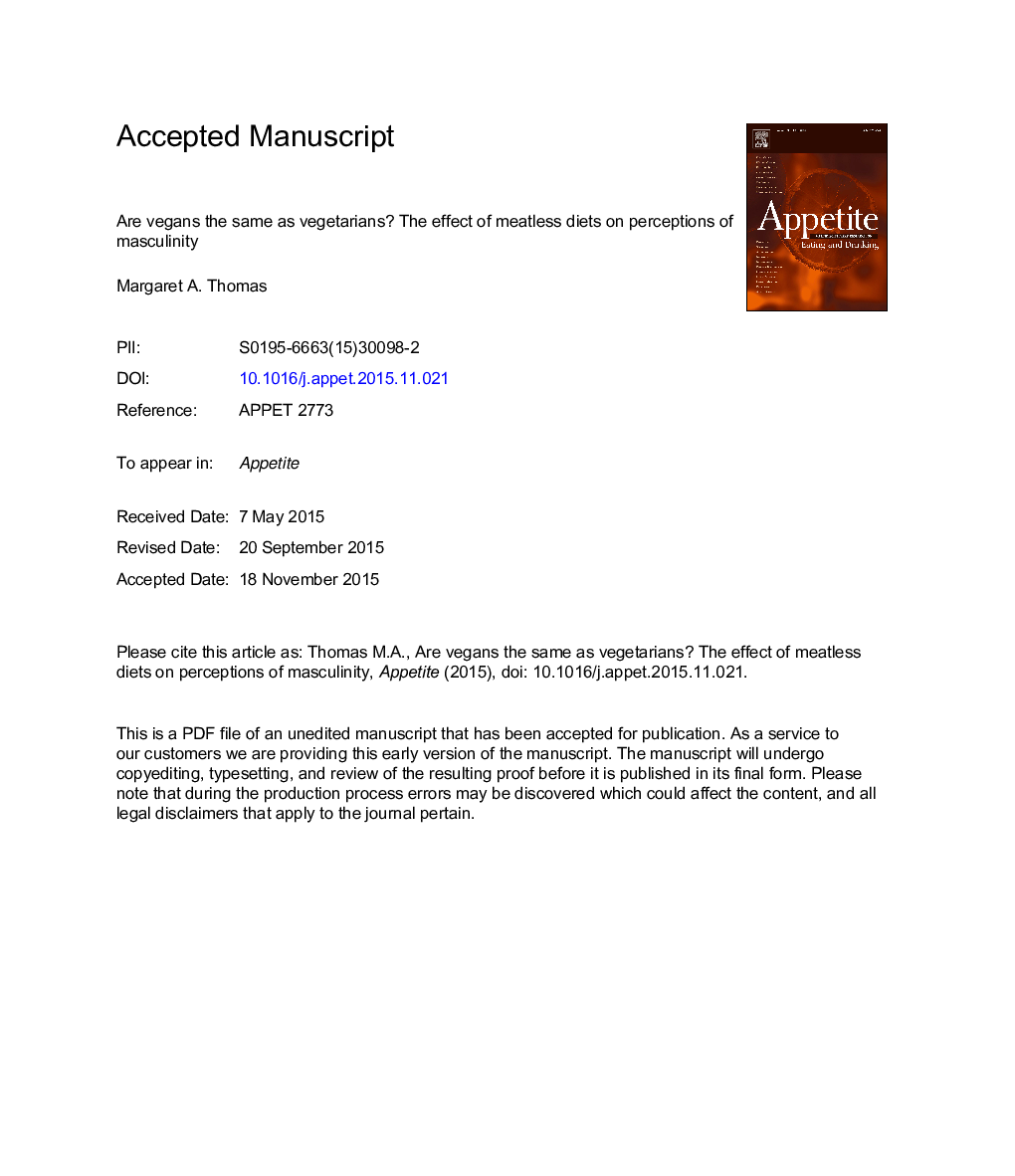| Article ID | Journal | Published Year | Pages | File Type |
|---|---|---|---|---|
| 7307887 | Appetite | 2016 | 35 Pages |
Abstract
Food and food consumption matters in interpersonal interactions. Foods consumed can affect how a person is perceived by others in terms of morality, likeability, and gender. Food consumption can be used as a strategy for gendered presentation, either in terms of what foods are consumed or in the amount of food consumed. Finally, foods themselves are associated with gender. Previous research (Browarnik, 2012; Ruby & Heine, 2011) shows inconsistent patterns in the association between vegetarianism and masculinity. The current research conceptually replicates and extends this research by including the explicit label of vegetarian. The four studies in this article provide increased information about the effects of diet on gendered perceptions. Study 1 shows that vegetarian and omnivorous targets are rated equally in terms of masculinity. Study 2 shows that perceptions of vegetarians and vegans are similar, though comparing this research with past research indicates that perceptions of vegetarians are more variable. Study 3 shows that veganism leads perceptions of decreased masculinity relative to omnivores. Finally, Study 4 tests one possible mechanism for the results of Study 3, that it is the choice to be vegan that impacts perceptions of gender. Implications include increased knowledge about how meatless diets can affect the perceptions of gender in others. Multiple directions for future research are discussed.
Related Topics
Life Sciences
Agricultural and Biological Sciences
Food Science
Authors
Margaret A. Thomas,
